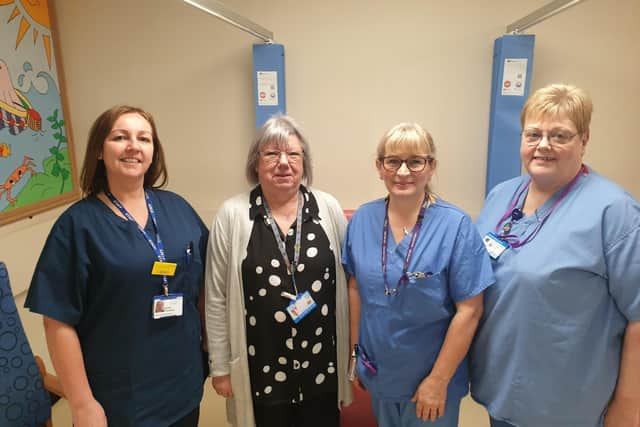Hartlepool hospital’s elective care centre given national recognition for patient safety
and live on Freeview channel 276
The surgical centre at the University Hospital of Hartlepool, in Holdforth Road, has been named as a National Joint Registry Quality Data Provider after successfully completing a national programme of local data audits.
The registry monitors the performance of hip, knee, ankle, elbow and shoulder joint replacement procedures to improve clinical outcomes for the benefit of the patient.
Advertisement
Hide AdAdvertisement
Hide AdIt also supports and gives feedback to orthopaedic clinicians and industry manufacturers.


Richard Jeavons, the trust’s clinical director of orthopaedics, said: “This is fantastic recognition for the elective hub at the Hartlepool.
"Patients need to know that the care they are receiving is safe and of the very highest standard.
"The operating theatres there are the Trust’s centre for elective care – a place where we perform the majority of our non-urgent, planned surgery.
Advertisement
Hide AdAdvertisement
Hide Ad"We are delighted with how the centre has been progressing over recent months and this is a further sign of the outstanding work being carried out by the clinical and support teams there.”
The University Hospital of Hartlepool is the organisation’s centre for planned, non-urgent surgical care and managed to meet six targets as part of the audit scheme.
In order to achieve the National Joint Registry award, hospitals must meet a series of six ambitious targets during the audit period of 2022 to 2023, including a national audit that assesses data and its quality in the registry.
The audit then compares the number of joint replacement procedures in the registry to the number carried out.
Advertisement
Hide AdAdvertisement
Hide AdNational Joint Registry medical director Tim Wilton said: “Congratulations to colleagues at North Tees and Hartlepool NHS Foundation Trust.
"The Quality Data Provider Award demonstrates the high standards being met towards ensuring compliance with the NJR and is often a reflection of strong departmental efforts to achieve such status.
"As well as being a fundamental driver to inform improved quality of care for patients, registry data provides an important source of evidence for regulators, such as the Care Quality Commission, to inform their judgements about the quality of health services.”